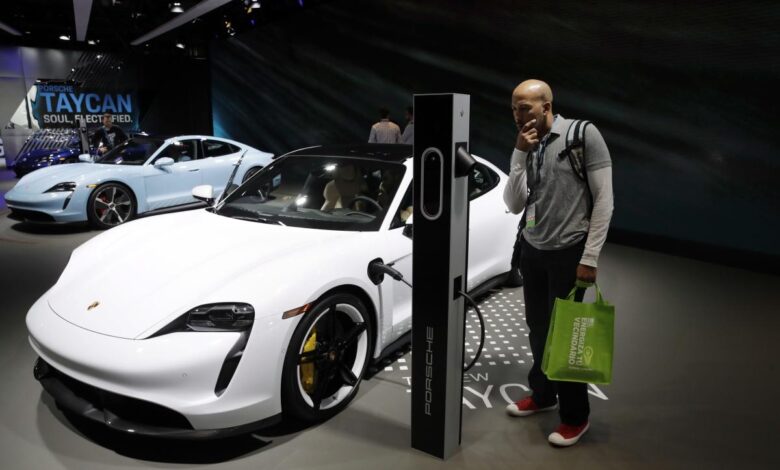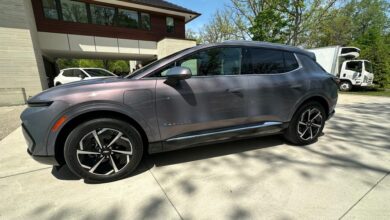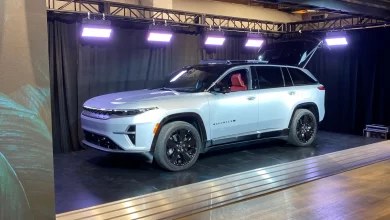More Canadian car buyers shunning EVs in 2024: J.D. Power

More Canadian car buyers are shunning electric vehicles (EVs) due to tighter household budgets and higher borrowing costs, according to J.D. Power Canada. A new survey by the market research firm says nearly three-quarters are unlikely to consider one for their next purchase.
J.D. Power Canada collected nearly 3,000 responses from consumers in March and April for its third annual Electric Vehicle Consideration study. The results show 72 per cent of automobile shoppers are either “very unlikely” or “somewhat unlikely” to consider an EV for their next purchase. That’s up from 67 per cent last year, and 53 per cent in 2022.
Limited driving distance per charge, or so-called “range anxiety,” was the top concern among those choosing not to buy electric (68 per cent), followed by purchase price (61 per cent), and charging infrastructure (60 per cent).
“They’re three separate issues that play off one another,” J.D. Ney, director of the automotive practice at J.D. Power Canada, said in an interview with Yahoo Finance Canada. “If you can afford an EV, you’re much more likely to own a home. That makes it a lot easier to install charging, which reduces your range anxiety. And then, you don’t have a challenge with charging infrastructure.”
However, he’s quick to point out that affordability is firmly in the driver’s seat when it comes to EV sales.
“The first year we ran this study, I think the Bank of Canada rate was at about one per cent. Obviously, times have changed,” he said. “If you can’t afford the vehicle, then the charging infrastructure doesn’t matter. If you can’t afford the vehicle, the range a battery gets doesn’t matter.”
J.D. Power Canada found Canadian car buyers remain far less interested in EVs than their American neighbours. This year’s survey found 11 per cent of Canadian new vehicle shoppers are “very likely” to consider an EV. That’s less than half of the 24 per cent of U.S. buyers who said the same.
Ney says part of this comes down to a Canadian preference for all-wheel drive vehicles with longer range.
“The types of EVs that Canadians are most interested in are the most expensive in the marketplace,” he said.
According to Statistics Canada, EV and plug-in hybrid electric (PHEV) vehicles accounted for 12 per cent of new vehicle registrations in the fourth quarter of 2023.
The federal government aims to phase out sales of new internal combustion vehicles by 2035, with interim targets of 20 per cent zero-emissions sales by 2026, and 60 per cent by 2030. (The government’s ZEV classification includes both EVs and PHEVs.)
J.D. Power Canada’s survey found prospective buyers in provinces with government purchase incentives are more likely to buy electric. Purchase intentions were strongest in Quebec, with 40 per cent indicating interest in EV ownership, followed by British Columbia at 33 per cent.
Ottawa offers up to $5,000 towards the purchase of eligible light-duty zero-emissions vehicles.
“There’s still nothing on the table in our largest province, Ontario,” Ney said. “Depending on where you live in Canada, your final purchase price could be quite a bit different.”
Jeff Lagerquist is a senior reporter at Yahoo Finance Canada. Follow him on Twitter @jefflagerquist.
Download the Yahoo Finance app, available for Apple and Android.



